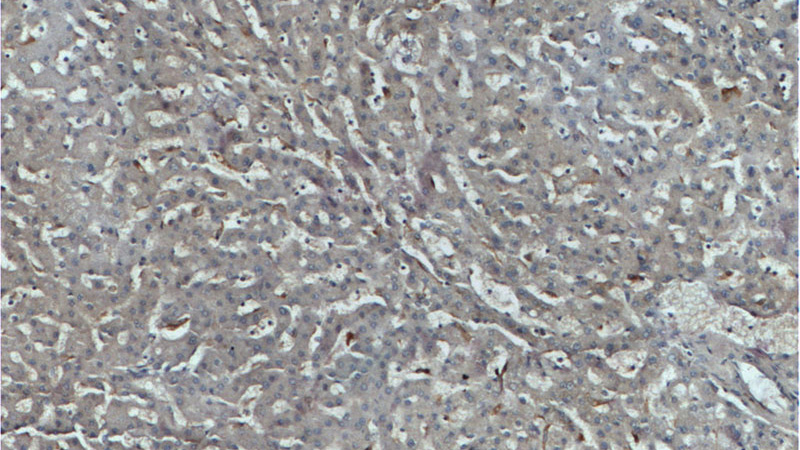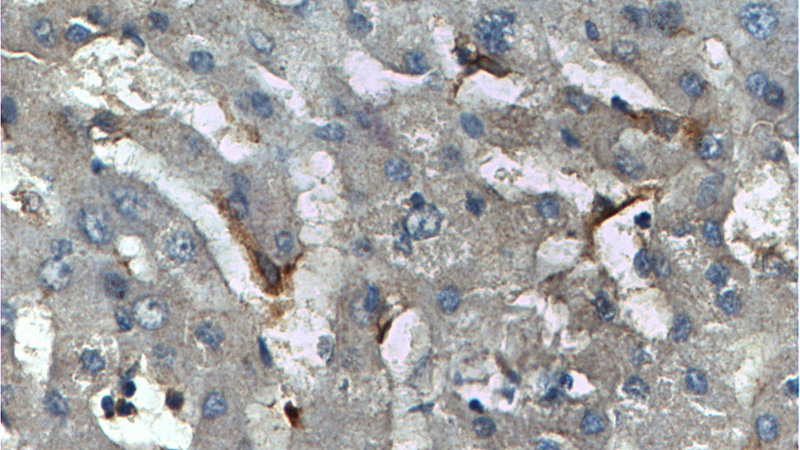-
Product Name
CD68 antibody
- Documents
-
Description
CD68 Mouse Monoclonal antibody. Positive IHC detected in human liver tissue.
-
Tested applications
ELISA, IHC
-
Species reactivity
Human; other species not tested.
-
Alternative names
CD68 antibody; CD68 molecule antibody; DKFZp686M18236 antibody; GP110 antibody; Macrosialin antibody; SCARD1 antibody
-
Isotype
Mouse IgG1
-
Preparation
This antibody was obtained by immunization of CD68 recombinant protein (Accession Number: NM_001251). Purification method: Protein G purified.
-
Clonality
Monoclonal
-
Formulation
PBS with 0.02% sodium azide and 50% glycerol pH 7.3.
-
Storage instructions
Store at -20℃. DO NOT ALIQUOT
-
Applications
Recommended Dilution:
IHC: 1:50-1:500
-
Validations

Immunohistochemistry of paraffin-embedded human liver tissue slide using (CD68 Antibody) at dilution of 1:200 (under 10x lens)

Immunohistochemistry of paraffin-embedded human liver tissue slide using (CD68 Antibody) at dilution of 1:200 (under 40x lens)
-
Background
CD68 is a type I transmembrane glycoprotein that is highly expressed by human monocytes and tissue macrophages. It belongs to the lysosomal/endosomal-associated membrane glycoprotein (LAMP) family and primarily localizes to lysosomes and endosomes with a smaller fraction circulating to the cell surface. CD68 is also a member of the scavenger receptor family. It may play a role in phagocytic activities of tissue macrophages.
Related Products / Services
Please note: All products are "FOR RESEARCH USE ONLY AND ARE NOT INTENDED FOR DIAGNOSTIC OR THERAPEUTIC USE"
